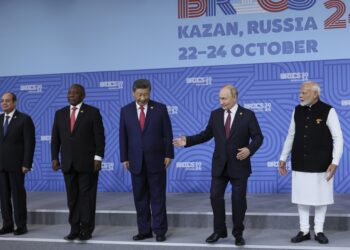The Cuban Ministry of Economy and Planning (MEP) approved this Thursday 133 new micro, small and medium-sized businesses (MSMEs).
With this, these new economic actors on the island exceeded 10,000 since their entry on the scene in 2021.
Only three of the MSMEs approved in the new group are state-run and the rest are private, according to the MEP on its Telegram channel.
The majority operate in gastronomic activities, the production of materials, elements, and articles for construction, a report from the EFE news agency said.
After being prohibited since 1968, small and medium-sized businesses returned to Cuba’s economic scene in September 2021, within the framework of government reforms. Currently, there are 10,076, the Spanish media confirmed.
Considered by some specialists as great drivers of the economy, in Cuba, not a few blame them for high inflation. In addition, it is also stated that the high prices of its products have highlighted and deepened the social differences on the island.
From state grocer’s to MSME grocer’s: new domestic trade in Cuba
Of the MSMEs, 19.6% are dedicated to manufacturing activities and 12% to the production of food and beverages, and they employ 225,000 Cubans, of which 189,000 are new jobs, according to official data, cited by EFE.
This sector employs more than 15% of the country’s workers and contributes just under 14% of the GDP, says the agency, which recalls that this management model has led to the presence of a market with a supply of products that were scarce in the state network and some non-existent in the country.
MSMEs do not have access to areas considered “strategic” by the State such as health, telecommunications, energy, defense, and the media. They coexist in the economic framework with the state enterprise ― the main one for the State in the Cuban socialist system ―, agricultural and non-agricultural cooperatives, local development projects, and self-employed workers.
On January 1, the application of new taxes and tariff measures for Cuban MSMEs came into force, part of a strong package announced by the government during the recent sessions of the National Assembly.
According to the Cuban authorities, the measures seek to eliminate “distortions,” “incentivize” production and “accelerate” the recovery of an economy mired in a deep crisis.
From the first day of the year, the sales and services tax was extended to all marketing operations of MSMEs, which until now only applied to retail marketing.
In addition, as of that date, the current tax exemptions were suspended, both for non-agricultural cooperatives and for small and medium-sized enterprises.
In terms of tariffs on the import of products, as of January 1, these taxes were raised for those who import finished items ready for sale. They also decreased for those who import raw materials for national production.
In the latter case, the incentive consists of a 50% reduction in the tariff rate previously established for the import of these goods.
There was also an increase in tariffs for goods “that are national products,” such as rum and cigarettes, while the exchange rate of one dollar for 120 Cuban pesos is now beginning to be applied for tariffs on imports made by non-state actors.
EFE/OnCuba










